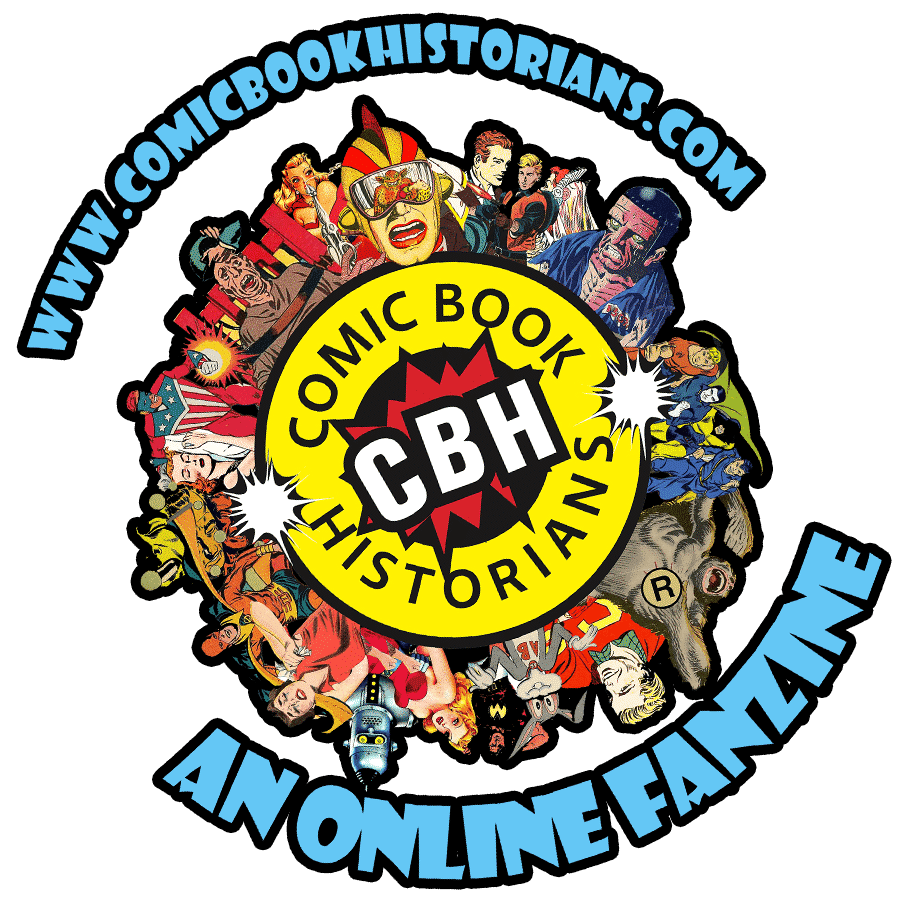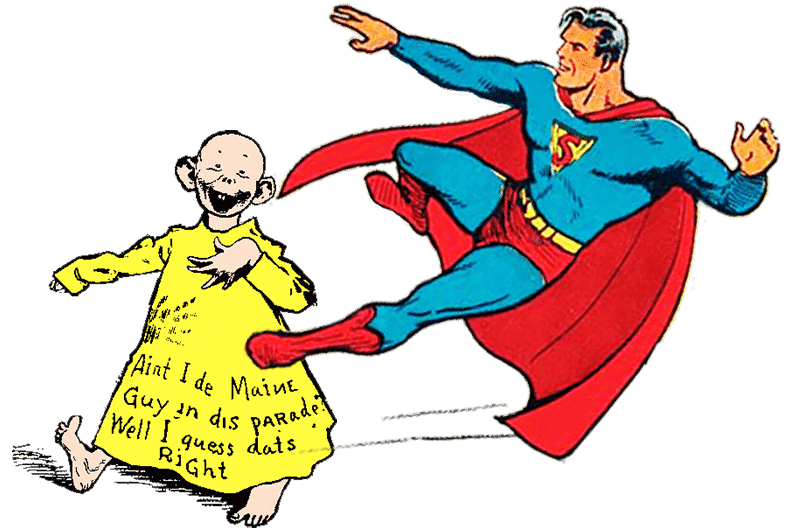Jesse Simon Interview on Joe Simon and ShieldMaster by Alex Grand

The above video is the video interview done a month after the written interview shown below.
Alex Grand: ShieldMaster appears to be a new superhero created by your father Jim, who pitched the idea to your grandfather, Joe Simon in 1998? I love the image that he drew that year which you posted recently. Tell us about this character. Would you consider him to be part of that patriotic line of superheroes that appear integral to the Joe Simon comic book legacy?
Jesse Simon: ShieldMaster was an idea that my father Jim had and brought to Joe. He gave Joe a script as he often did way back when and Joe absolutely loved it. If you knew Joe, you know he was not easily impressed and often very critical. Joe loved it so much that did the prototype art with my father’s guidance on what he wanted. Jess Stevens is the main character and he is a teen that is just about an adult. The story takes place on Montauk in an abandoned military base (it really exists) Jess and his friends discover these alien-like shields and become ShieldMaster etc. They have to get used to their powers and well then… I don’t want to give away too much but it’s a good story. This one was written by my father but I’ve planned out a 10 issue saga. I’ll be fully taking over after these two issues with Jim just helping out with plots and writing. I’ll be handling editorial, art editorial, the business side and all that fun stuff that goes into producing a comic.

Alex: What are your plans with Shieldmaster and how can people help support it?
CLICK TO SUPPORT SHIELDMASTER: https://www.kickstarter.com/projects/simonstudios/shieldmaster
Jesse: I am launching ShieldMaster on Kickstarter December 14th 2022. December 14th is the day Joe passed, but instead of it being a negative day, I want to continue something that he was involved in on that day. We have some great covers, many that I had a strong editorial hand in, by top talent in the industry. Covers by Steven Butler, Romeo Tanghal, Bob Layton, David Mack, Joe’s prototype art, and even a cover by Jesse Simon, me. In order to execute the next 8 issues that I have planned in the 10 issue saga, we need to raise enough money to fund future comics. Help out in any way you can, pledge on kickstarter, get some great content that’s part of a larger story, and share it all around!

Alex: It seemed that Jim and Joe were very close, they worked on the Joe Simon bio, Comic Book Makers together. Tell us about that relationship, and is it difficult for Jim to speak about his father, after he passed?
Jesse: Joe and Jim were very close. Jim used to pose for Joe for covers and give Joe some ideas of which Joe would build off of. When Joe would need help in the studio, Jim would do some writing or editorial work. The Comic Books Markers, a revolutionary book when it came out, was a book that was started by Jim just writing down all these stories that Joe told him about. He presented the book to Joe and then they got to work seeing all the great content there was. They even had their own company together, Crestwood II. Jim was also Joe’s advisor in law deals, including the settlement of Captain America, getting the rights back to the Fly and Lancelot strong and renewing copyrights. They truly were a great team, Jim isn’t only talking about Joe Simon, he’s speaking of his father too.

Alex: You’ve been a very strong advocate for your grandfather, Joe Simon, and a worthy Simon historian in your own right. Tell us about the responsibility you feel in setting the record straight as far as your grandfather’s importance to comic history.
Jesse: I’ve had such a great experience getting to grow up with Joe. He was everything you would think he was and more. Not a perfect man, but a good one. He was very funny and loved to make people laugh, I found him funniest when he was being serious. I knew him for being my grandfather but also as the creator of Captain America, even from the age of 5, I was very proud. As I grew older, I discovered all his other creations, innovations, stories, and art. I heard stories from my father, Jim Simon, on what it was like growing up in the Simon and Kirby studio sitting in front of Joe and Jack as these classic pages came to life. To have known Joe in a personal way and to see his talent first hand, it bothered me when he wasn’t given his credit. Someone who worked so hard for so many decades, to be not given his recognition. At times Joe even remarked “All of the fans hate me” as he never received his credit. Deep down it bothered him, so I try to get him his credit where I can. He was once asked, “Why are there question marks regarding the credit to your inks on comic websites, obviously you inked them?” Joe replied with “Of course I inked them, nobody wants to give me the credit”.

Alex: How many years did you have together chatting about his comics career?
Jesse: He would often speak with others regarding comics and his career and I’d be listening. I’ve always liked comics and the artwork, often studying the artwork on the walls. He told me about the creation of Captain America and Fighting American as I was giving a presentation in class about those characters. Carmine Infantino would often come over and he’d sit with his legs crossed and talk with Joe. I used to run by Carmine as they’d talk.

Alex: He basically set up the initial Marvel bullpen right? He joked in a newspaper that he created Stan Lee. What did he mean by that? (probably training Stan)
Jesse: Joe had a great sense of humor, just look at Sick Magazine and the “Sam Me” story. I often say, without Joe and him setting Timely up, Marvel would have closed in the early 50’s. Captain America allowed Martin Goodman to compete with DC comics, without that, forget it. He taught Stan alot, with Stan admitting that everything he knew he got from Joe. Stan and Joe were friends until the end but there was also a sense of respect given to Joe by Stan. No matter how famous Stan got, on the phone with Joe or in person, he became that 16 year old kid again when Joe hired him. I have recordings that Joe taped of Stan and him on the phone, they’re truly fantastic.
Alex: Your grandfather seemed to be drawn to the patriotic superheroes, Captain America for Marvel, Guardian for DC, Fighting American. Why do you think that was? He served in the military, did this experience inform his determination to portray these heroes?
Jesse: Joe was very patriotic in general. His family is the definition of the American dream. Joe’s parents come through Ellis Island and start a family. Joe not going to college due to him having to pay and help his parents financially. Then he is one of the builders of an industry building his own way. Joe was out-raged with the war, so much so he convinced Alfred Harvey to enlist with him. Jack soon after got drafted, all these guys fought for our country, and before they could fight physically, they fought with their pencils and words. After the war, Joe and Jack did foxhole which were all war stories. As similar as Joe and Jack were, Joe did not enjoy talking about the war compared to Jack who often spoke about it. Joe’s brother-in-law by marriage, Jack Oleck, was a writer for Simon and Kirby studio as well as DC comics. Oleck was part of General Patton’s team liberating the camps, and Oleck would never speak of the war, you couldn’t even mention it to him.

Alex: Joe and Jack defined Romance comics and also worked in other genres, Crime, Horror, etc. what was the nature of their professional relationship and why do you feel they worked so well together?
Jesse: A lot of people fail to take into account the most important thing. Joe and Jack were not just business partners, They were not just creative partners, but they were best friends. As I say, like brothers, they were extremely similar. As great as Jack was, he was not a businessman. He leaned on Joe for that, and Joe always took care of Jack. Negotiating a never before heard 50/50 split with DC comics, Harvey Comics, and Crestwood. Their brains were similar creative wise, Joe knew how to play into Jack’s strength and bounce ideas off of each other. They knew how to work together and had a very strong respect for each other. Joe said there was nobody else like Jack and Jack said that there was nobody that knew comics better than Joe. They clicked and were bursting with ideas and talent.

Alex: What type of work did Joe do in the late 1950s? I read that he had gotten involved in politics at this time?
Jesse: Joe was starting to get out of comics. He would do work for Harvey Comics when Al needed favors. Joe did the Fly and Lancelot Strong at Archie when John Goldwater wanted some new superheroes. But all in all, Joe’s attention was all at Sick Magazine.

Alex: Tell us about his work in the humor genre with Sick Magazine?
Jesse: Joe loved Sick Magazine, it allowed him to showcase some of his humor. It was the number two magazine after Mad Magazine. However, their budgets couldn’t be more difficult. Sick Magazine was really a one man operation. Joe would work out of his Stony Brook studio. Editing, writing, plotting and getting everything together for future issues. He had some of the best talent doing art, Joe himself, Jack Davis, Bob Powell, Angelo Torres, and the list goes on and on. It didn’t make Joe rich but it helped with the bills.

Alex: In the early 1990s, there seemed to be a rush to discover Spider-Man’s origin, and various sources point to Joe Simon as being the originator of the name, as well possibly some other ideas used by Stan and Jack in early Marvel, for example four adventures with the Challengers which became the FF? What was his version of these events?
Jesse: We can cover that in a separate discussion. I have voice recordings between Joe and Ditko talking about the creation of Spider-man. It’s a long story. Regarding Challengers, that was a creation between Joe and Jack at Mainline. Jack took it to DC and later reused the concept as Fantastic Four.
CLICK TO SUPPORT SHIELDMASTER: https://www.kickstarter.com/projects/simonstudios/shieldmaster
More on Joe Simon here with his interview by fellow CBH’er David Armstrong:
Join us for more discussion at the CBH Facebook group
check out our CBH documentary videos on our CBH Youtube Channel
get some historic comic book shirts, pillows, etc at CBH Merchandise
check out our CBH Podcast available on Apple Podcasts, Google PlayerFM and Stitcher.
Use of images are not intended to infringe on copyright, but merely used for academic purpose.
Images used ©Their Respective Copyright Holders











